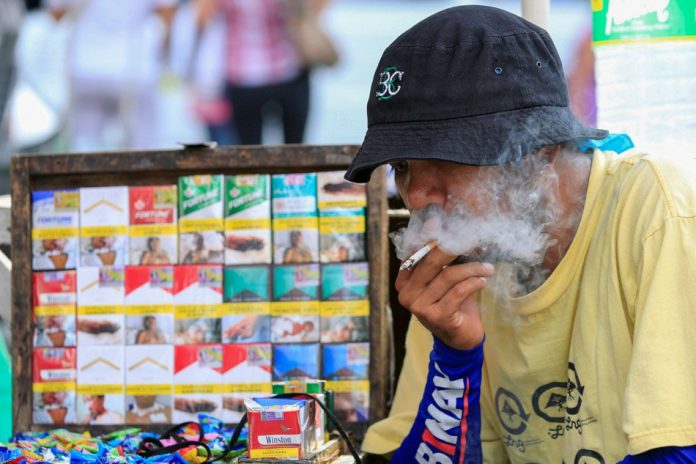
MANILA – The Department of Finance will “try its best” until the last minute to convince Congress to impose new “sin” tax rates on tobacco products that will make cigarettes pricey enough to further discourage smoking, especially among teenagers.
Finance secretary Carlos Dominguez III said in a statement Tuesday that increasing the current tobacco excise tax rates to levels that would effectively curb smoking, particularly among the youth, would also help supplement funds for the Universal Health Care (UHC) program, especially for the treatment of smoking-related diseases.
“There’s still the Senate. We will try our best. This thing doesn’t end until the President signs it. We’re there, we’re keeping at it. We hope that they will come up to what is good for the country,” said Dominguez during a recent press briefing.
Dominguez’s statement was in reaction to the approval by the House Committee on Ways and Means last Nov. 27 of a consolidated bill that increased tobacco excise tax rates to levels that did not go far enough to what the Department of Health and anti-tobacco and health advocates have recommended. The House-approved bill aims to raise the current tax of P35 per pack of cigarettes to P37.50 beginning July 2019.
The bill also calls for another increase to P40 in July 2020, P42.50 in July 2021, and P45 in July 2022. Thereafter, the rate shall be raised four percent every July annually.
The DOF proposal supports the position of Rep. Angelina Tan to raise the tobacco excise tax to P60 per pack in 2019 and increasing it by nine percent annually thereafter.
“The society has to agree what is more important: enough money for healthcare or favoring companies that produce products that damage health? That’s what society has to agree on, and that’s what the representatives in the legislature are supposed to reflect,” Dominguez said.
Citing the testimonies of resource persons heard by the House ways and means committee during its deliberations on the proposed new tobacco tax rates, Dominguez said the higher excise taxes on cigarettes under the Sin Tax Reform Law have led to a drop in the number of smokers by roughly a million people per year, with fewer teenagers getting into the habit, and a corresponding increase in revenues that are spent on treating Filipinos with smoking-related diseases.
“Our revenues have to keep on going up because we are supporting a lot of people who are getting sick from smoking. That was all the testimony. I was reading the summary of the testimonies, it’s overwhelmingly in favor of higher taxes for health reasons,” Dominguez said. (DOF/PN)







